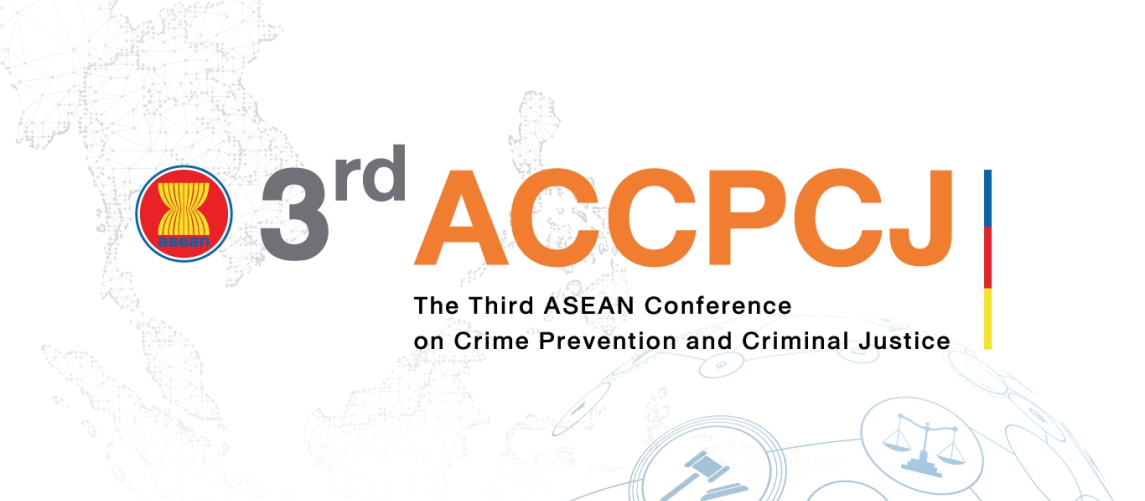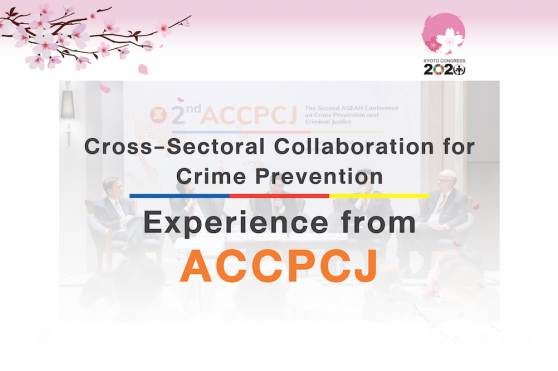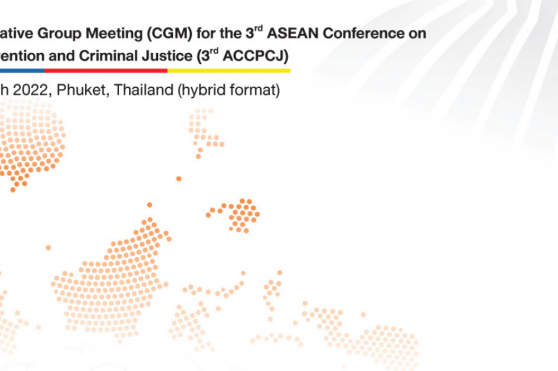ASEAN Discusses ‘Criminal Justice’ in Post-COVID Recovery Era, Engages Youth in Shaping Justice in the Digitized World at 3rd ACCPCJ
Representatives of ASEAN Community have come together to address three major issues in criminal-justice sphere namely cybercrimes, justice reform, and international cooperation at “The Third ASEAN Conference on Crime Prevention and Criminal Justice or 3rd ACCPCJ” between 22 and 24 August 2022 as COVID-19 has worsened criminal-justice situation throughout the past three years. Not only that old problems have aggravated, but new problems have also emerged. The conference has placed an emphasis on easing prison overcrowding, solving cybercrimes, and boosting public–private partnerships across all sectors. Moreover, youth have been given a role to play at this conference, which was organized by Thailand’s representative or Thailand Institute of Justice (TIJ).
 (137).jpg)
The 3rd ACCPCJ is the first ASEAN Conference on Crime Prevention and Criminal Justice in the post-COVID recovery era. Taking the theme of “Responding to Crime and Justice Challenges amidst ASEAN Recovery from the Covid-19 Crisis”, it has created a forum for member states to exchange their viewpoints, experiences, and guidelines while fostering legal cooperation on transnational crime prevention and integrated criminal justice. At the forum were ASEAN Senior Law Officials Meeting (ASLOM) members, Senior Officials Meeting on Transnational Crime (SOMTC) members, Senior Officials' Meeting for the ASEAN Socio-Cultural Community (SOCA) members, policymakers, practitioners, and academics working in ASEAN’s judicial field.
 (190).jpg)
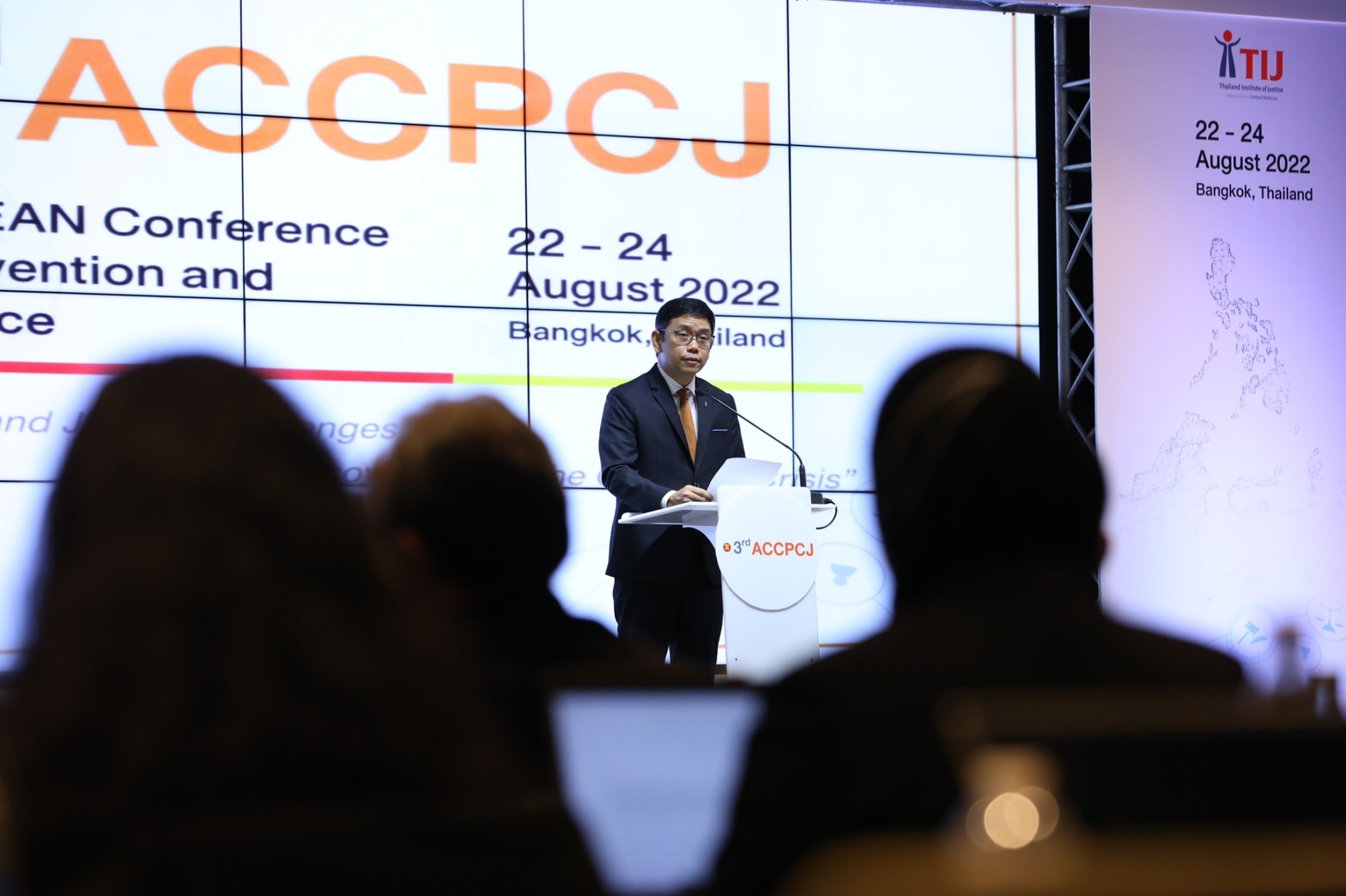
Dr. Phiset Sa-ardyen, executive director of TIJ, said about the ACCPCJ that, “This conference focuses on trends, latest situation, challenges, problems, obstacles, and the prioritization of issues related to vision and approach to address the problems together through the perspectives of ASEAN’s senior officials, policymakers, practitioners, academics, as well as youth. This conference aims to provide solutions via brainstorming and cross-pillar, cross-sectoral coordination at the regional level. It is expected to pave way for the development of proper legal framework, international cooperation, public–private partnerships, and capacity building that will remove existing challenges to the point that solutions are finally implemented across ASEAN. We have empirical evidence that our cooperation in the justice process need to be as solid as our cross-sectoral cooperation in braving through COVID-19 crisis. Criminal-justice problems, after all, have been growing and taking place across borders. These problems are not native to just any specific country because we are not just citizens of a nation but also citizens of ASEAN. Indeed, we need to study and address ASEAN’s problems together. I believe that to get sustainable solutions, we need cross-sectoral cooperation. The 3rd ACCPCJ Conference presented both seminars and consultive group meetings. Participants were representatives from both the public and private sectors as we tried to solve criminal-justice problems in ASEAN and give the voice to all relevant parties, who could share their knowledge and speak up about solutions and guidelines at this forum”.
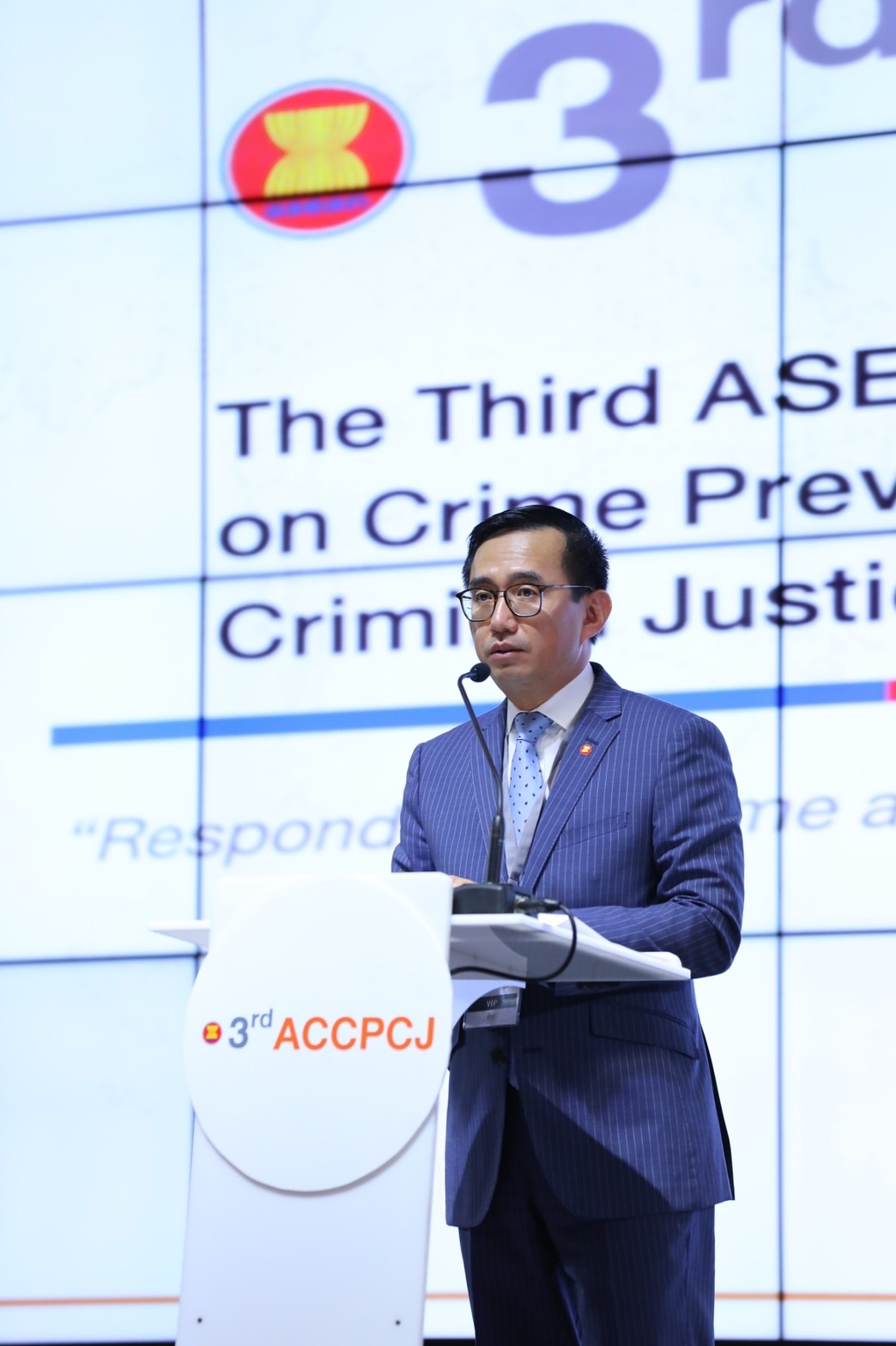
H.E. Tran Duc Binh, Deputy Secretary-General of ASEAN for Community and Corporate Affairs, said the 3rd ACCPCJ is very important because it was held on ASEAN’s 55th anniversary. Justice and judicial process are ASEAN’s important agendas. As a result, many specialists have gathered at the 3rd ACCPCJ to drive cooperation for justice and judicial-process improvement. Also engaged in the forum were ASEAN’s youth, whose contributions made the conference even more meaningful. Presently, ASEAN has already achieved various forms of cross-sectoral cooperation for the goal of crime prevention. The 3rd ACCPCJ is expected to foster cooperation and positive output at officials’ level. In addition to discussions among ministries and partners, collaborations driven by the conference will strengthen ASEAN’s Rule of Law and Good Governance.
 (160).jpg)
During the past few years, the region’s social and economic conditions have changed significantly. In the face of growing digital-technology usage, cybercrimes have been on the rise. The number of internet users in ASEAN has dramatically jumped during COVID-19 outbreak too. As the number of users soars, so does the number of cybercrimes. ASEAN nations, therefore, must work together in stepping up its efforts against cybercrimes while continuing their economic drives. ASEAN’s key Plan of Action, now known as Bandar Seri Begawan Plan of Action, is now giving a stronger emphasis on cybercrime prevention. As for Thailand, the country has already engaged in cross-pillar, cross-sectoral cooperation with others. In ASEAN’s view, our goal requires cooperation from all sides because it cannot be fulfilled by just a single organization.
On ASEAN’s role in the eradication of judicial problems and justice reform on the global stage, ASEAN has expressed strong support for Rule of Law and Good Governance. Moreover, ASEAN has pursued legal cooperation and pushed for justice reform through various partners and collaborations with stakeholders. The 3rd ACCPCJ, which has brought together relevant parties, bodes well for our stronger partnerships and mutual sharing of experience / expertise. The ASEAN Secretariat, meanwhile, has always supported state members in the eradication of crimes and justice problems.
 (18).jpg)
Mr. Luke Tang, Director International Legal Division at Singapore’s Ministry of Law, said his country had its strengths and thus could share useful information, experience, and good practices with others. For instance, Singaporean courts accepted the online submission of evidence during COVID-19 outbreak so as to improve people’s access to justice system as well as the system’s efficiency. ASLOM, on its part, has already established the Working Group on ASEAN Extradition Treaty. Once this treaty is complete and ready for implementation, international cooperation will soar to the next level.
 (21).jpg)
Mr. Kittipoom Neamhom, Director of International Relation and Policy Coordination at TIJ, said ACCPCJ aimed to promote cross-pillar, cross-sectoral cooperation across ASEAN. At the 3rd ACCPCJ, not only that each state member discussed its major problems, but all members also focused on recovering from COVID-19 crisis. Three major issues at the conference were cybercrimes, international cooperation, and justice reform. As participants addressed these issues, they sought cooperation not just from parties in the justice field but also parties from all other relevant fields.
The new and shared challenge of ASEAN is Cybercrime. This problem has been intensifying fast and furiously than ever before, causing massive damages, as cybercrime forms have been evolving all the time. Online offenses, frauds, and exploitation of vulnerable groups have recently mushroomed as cybercriminals deploy technologies in inflicting damages on individuals as well as organizations at not just national but also regional levels.
Prison overcrowding is a chronic problem in ASEAN’s justice system, underlining the need for “justice reform”. Prisons have been overcrowded partly because of the strong emphasis on punitive approach, which leads to imprisonment and the lack of proper rehabilitation during prison time. COVID-19 pandemic has worsened prison-management problems too, making it even harder to uphold inmates’ human rights. Most of prisons’ limited budget has been spent on food while their limited spaces are overwhelmed by the high number of prisoners. Such problems have been especially acute at small prisons that sit in the heart of cities. Justice Reform must focus on rehabilitation rather than punishment using approaches such as probations, paroles, and Restorative Justice. Not only that such focus will ease prison overcrowding, but it will also rehabilitate inmates and transform them into quality people for reintegration into society.
The other substantial problem is how to forge international cooperation for efforts to solve justice problems together. As COVID-19 crisis brought forth travel restrictions, response to requests such as extradition requests or requests to investigate defendants’ assets has met with much difficulty. Such problem has also grown more complex and intense today.
The 3rd ACCPCJ is expected to generate new ideas and approaches for more comprehensive crime prevention and criminal-justice system, greater cooperation from all sectors, a lower cost, higher efficiency, and better response to the needs of all sides.
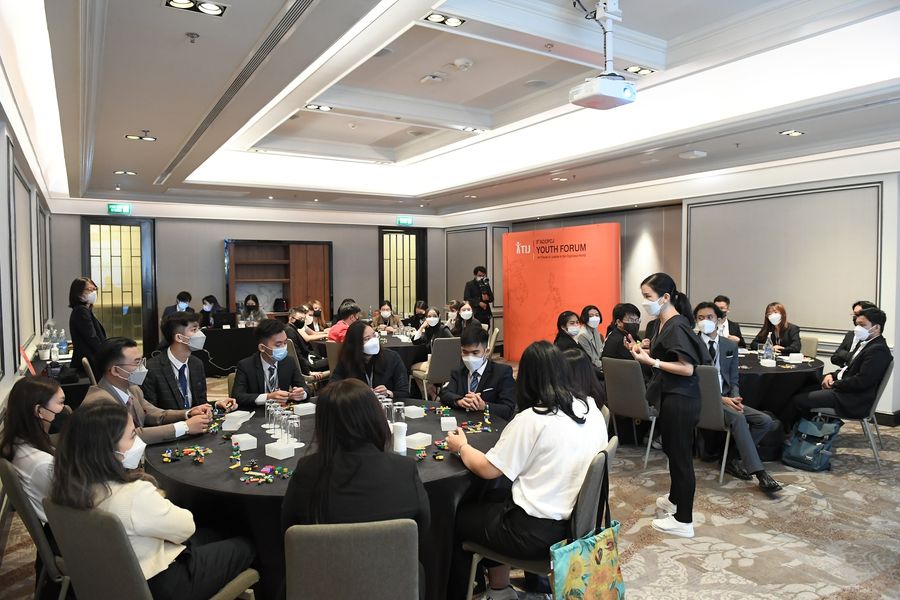

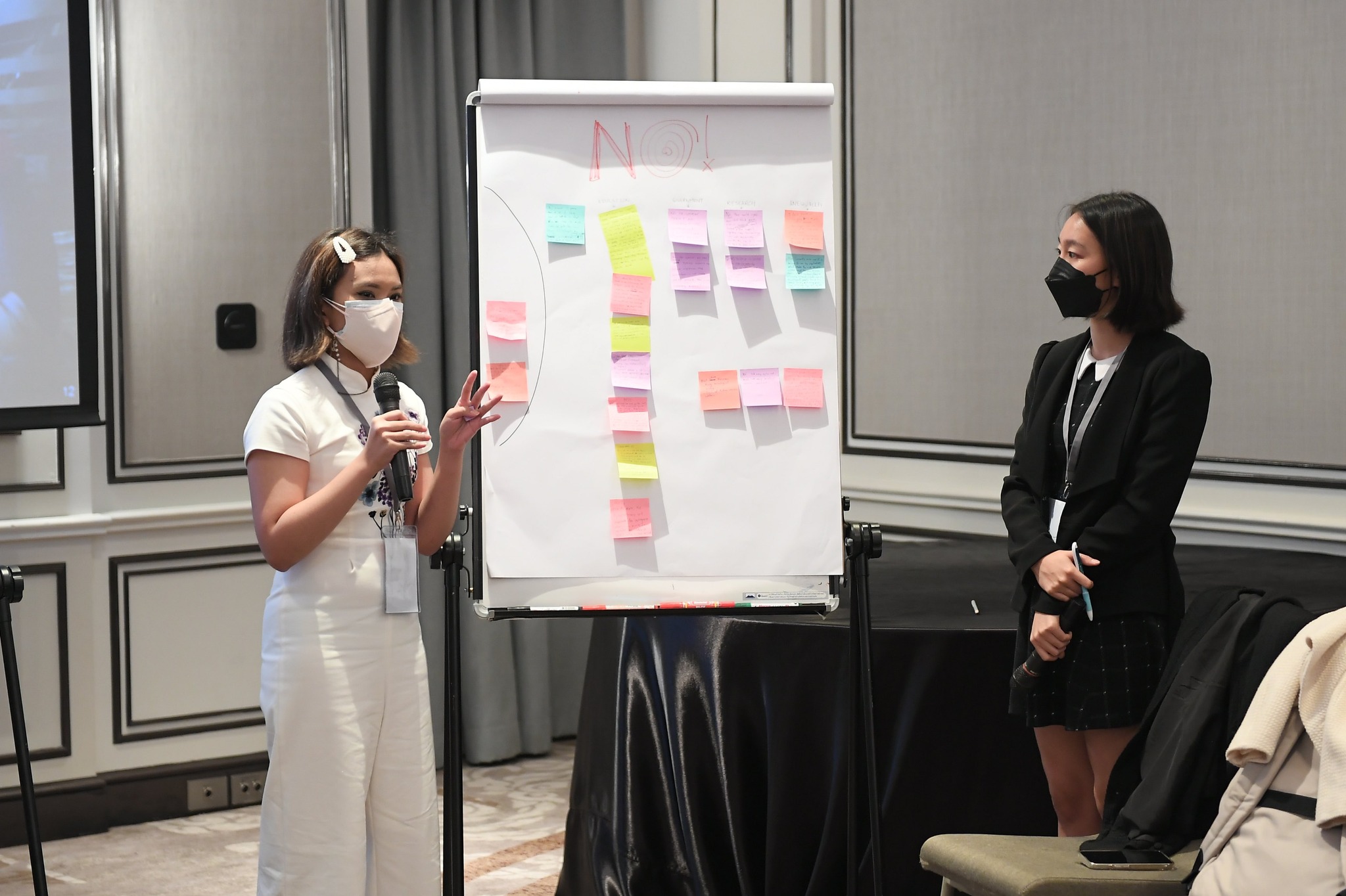
In connection with the 3rd ACCPCJ, TIJ selected 25 ASEAN youth representatives from 150 young people who attended the 19th ALSA Forum on “Challenging Distances: Metaverse World Intertwined” between 4 and 7 August 2022 to present their recommendations on “Future of Justice in the Digitized World” at the 3rd ACCPCJ on 24 August 2022, the last day of the 3rd ACCPCJ. The ALSA forum was jointly held by TIJ and the Asian Law Student’s Association or ALSA.
TIJ has organized activities for ASEAN youth in hopes of giving them networking opportunities and spaces for the planning and promotion of proposals, recommendations, and key topics at ASEAN level. Through these activities, they could contribute to effective and sustainable criminal-justice improvement alongside the civil society, the business sector, leaders, and relevant parties at both national and regional levels.
The 3rd ACCPCJ or The Third ASEAN Conference on Crime Prevention and Criminal Justice (3rd ACCPCJ) was held between 22 and 24 August 2022 at Bangkok Marriott Marquis Queen's Park in Bangkok. Participants included H.E. Somsak Thepsuthin, Thailand’s Minister of Justice, H.E. Tran Duc Binh, Deputy Secretary-General of ASEAN for Community and Corporate Affairs, and Mr. Naoki Sugano, a representative of UNODC Regional Office for Southeast Asia and the Pacific.
Click here to read Summary : Responding to Crime and Justice Challenges amidst ASEAN Recovery from the Covid-19 Crisis



